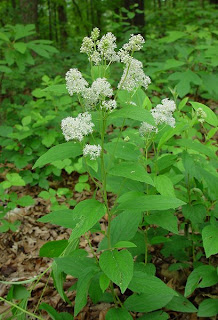ROSE

Latin Name: Rosa canina
Alternate Names: Queen Of Flowers
Family: ROSACEAE
Parts Used: Flowers, hips.
Properties: Antibacterial, Antidepressant, Anti-inflammatory, Antiseptic, Antispasmodic, Antiviral, Aphrodisiac, Aromatic, Astringent, Blood Tonic, Carminative, Diuretic, Expectorant, Kidney Tonic, Laxative, Nutritive, Sedative, Tonic.
Internal Uses: Amenorrhea, Anger, Anxiety, Catarrh, Colic, Depression, Diarrhea, Dysmenorrhea, Exhaustion, Frequent Urination, High Cholesterol, Tonsillitis, Vertigo
Internal Applications: Tea, Tincture, Capsules, Syrup.
Do not boil the tea. The flower and hips have different properties. Flower -- antibacterial, antidepressant, anti-inflammatory, antiseptic, antispasmodic, antiviral, aphrodisiac, aromatic, astringent, blood tonic, carminative, expectorant, kidney tonic, and sedative. Hips -- astringent, blood tonic, diuretic (mild) kidney tonic, laxative, nutritive, tonic.
Only the flowers are used for irregular menses, and only the hips are used for diarrhea, exhaustion, and frequent urination.
Internal Applications: Tea, Tincture, Capsules, Syrup.
Do not boil the tea. The flower and hips have different properties. Flower -- antibacterial, antidepressant, anti-inflammatory, antiseptic, antispasmodic, antiviral, aphrodisiac, aromatic, astringent, blood tonic, carminative, expectorant, kidney tonic, and sedative. Hips -- astringent, blood tonic, diuretic (mild) kidney tonic, laxative, nutritive, tonic.
Only the flowers are used for irregular menses, and only the hips are used for diarrhea, exhaustion, and frequent urination.
Topical Uses: Bruises, Conjunctivitis, Eye Soreness, Muscle Strain, Skin Dryness, Sprains
Topical Applications: Use in cosmetics for dry, wrinkled skin to soften and smooth the skin. Use as a bath herb. Rose petals are used in facial steams for dry skin. Rosewater is wonderful for dry skin, bruises, sprains, pulled muscles and compresses for sore eyes and conjunctivitis. Used in potpourri and sachets for the aroma and color. Essential oil is used as perfume.
Culinary uses: Fruits can be eaten plain or made into candy. Used to make jams, pies, breads, muffins, sauces and soup. Make pickled rose buds. Rose petal can be eaten plain once the bitter, whitish heel has been removed. Use as a garnish in candy and use for celebration cakes. Mix chopped roses into softened butter. Rose jam, rose ice cream, rose vinegar. Sprinkle a few rose petals into a fruit or vegetable salad. Mix rose petal with cream cheese for dainty sandwiches. Rose wine is popular in the Mideast. There are rose flavored candies such as Turkish delight. Rose water is wonderful added to yogurt dishes, lemonade and Indian desserts.
Energetics: Sweet, Bitter, Cool, Sour, Neutral.
Chemical Constituents: Flowers contain essential oil (eugenol, geranic acid, citronellol, geraniol, nerol), terpenes. The fruit contains vitamin C, beta carotene, thiamine, riboflavin, vitamins E and K, polyphenols, tannin, pectin, vanillin.
Contraindications: As with all herbs, avoid using those that have been sprayed with toxic chemicals. Remove the irritating hairs from the rose hips before eating them. Pure rose oil is very expensive. Beware of synthetics and adulterated oils which will not have the therapeutic benefits.
Comments: The flowers are sweet, bitter and cool. Red roses are more warming than white ones. The rose hip is sour and neutral.
Roses have been cultivated for over 3,000 years. They are a universal symbol of beauty and love. White roses symbolize more innocent love while Red Roses symbolize passionate love. Pink is for simple and happy love. Yellow Roses symbolize friendship, jealousy and ambition. The word Rose is derived from the Greek rodon, meaning 'red'. Dog rose is so named as it was once a remedy to treat dog bite and rabies. During World War II, English people used Rose Hips as an important vitamin C syrup. The term sub rosa, 'under roses' is an indication of secrecy from days when a rose would be hung over a banquet table so that all that was spoken underneath would be held in confidence.
The common name Rose contains many species, including Rosa canina (Dog Rose), Rosa centifolia (Cabbage Rose), Rosa damascena (Damask Rose), Rosa eglanteria (Sweet Briar), Rosa gallica (Red Rose), Rosa rubirinova (Rose Mosqueta), and Rosa rugosa (Japanese Rose), which are used interchangeably.
Roses have been cultivated for over 3,000 years. They are a universal symbol of beauty and love. White roses symbolize more innocent love while Red Roses symbolize passionate love. Pink is for simple and happy love. Yellow Roses symbolize friendship, jealousy and ambition. The word Rose is derived from the Greek rodon, meaning 'red'. Dog rose is so named as it was once a remedy to treat dog bite and rabies. During World War II, English people used Rose Hips as an important vitamin C syrup. The term sub rosa, 'under roses' is an indication of secrecy from days when a rose would be hung over a banquet table so that all that was spoken underneath would be held in confidence.
The common name Rose contains many species, including Rosa canina (Dog Rose), Rosa centifolia (Cabbage Rose), Rosa damascena (Damask Rose), Rosa eglanteria (Sweet Briar), Rosa gallica (Red Rose), Rosa rubirinova (Rose Mosqueta), and Rosa rugosa (Japanese Rose), which are used interchangeably.

